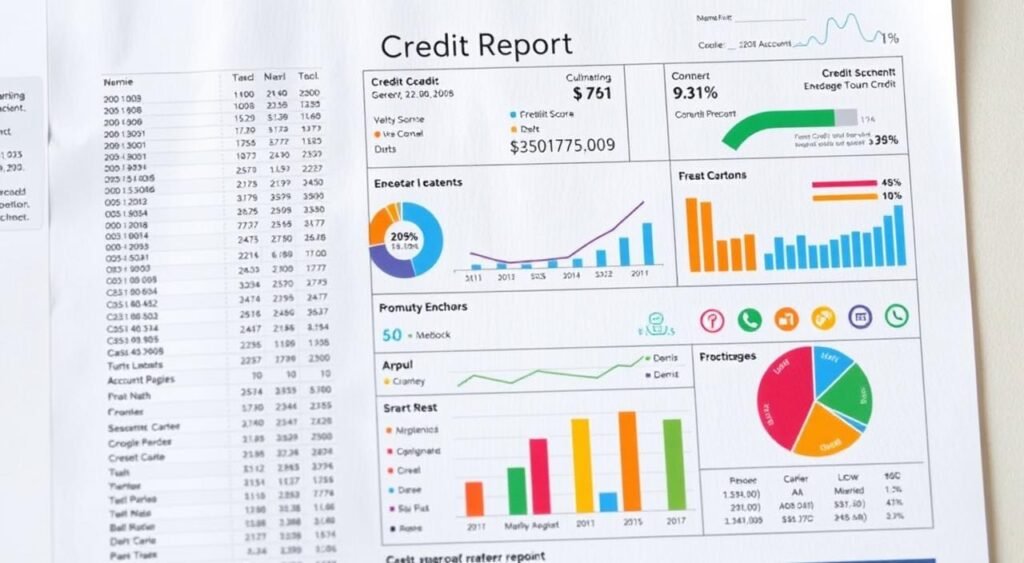Conventional mortgages are the most common home loans in the U.S. They are not insured by federal agencies like FHA or VA loans. The process to apply for a conventional mortgage includes several key steps. These range from understanding different loan options to getting approved.
The whole mortgage application to closing process usually takes about 43 days. However, it can be shorter or longer. It depends on the borrower’s financial situation and the lender’s work pace.
Key Takeaways
- Conventional mortgages are the most common type of home loan in the U.S.
- The application process typically takes 43 days on average, but can range from 2 weeks to 2 months.
- Borrowers typically need a minimum credit score of 620 and a debt-to-income ratio below 45% to qualify.
- Underwriters evaluate factors like loan-to-value ratio, cash flow, payment history, property condition, and employment history.
- Comparing mortgage offers from multiple lenders can lead to significant cost savings.
Understanding Conventional Mortgages Basics
Conventional mortgages are a favorite among homebuyers. They offer various options to meet different financial needs. These loans are mainly fixed-rate mortgages and adjustable-rate mortgages (ARMs). Fixed-rate mortgages have steady monthly payments. ARMs start with lower rates but can change later.
Different Types of Conventional Loans
Conventional loans are split into conforming and jumbo loans. Conforming loans follow rules from Fannie Mae and Freddie Mac. They have a limit of $766,550 in most of the U.S. in 2024. Jumbo loans are bigger and often need better credit.
Benefits of Conventional Mortgages
Conventional mortgages are flexible with down payments. You can start with as little as 3%. But, lenders usually suggest a 20% down payment to avoid extra insurance costs. They also offer lower rates for those with good credit.
Government vs Conventional Loans
Conventional mortgages have stricter credit rules than government-backed loans. But, they’re better for those with strong credit and can make bigger down payments. Conforming loans are especially good for those wanting stable payments and long-term home ownership.
Preparing Your Finances Before Application

Before you start the mortgage application, make sure your finances are ready. Check your credit report, work on your credit score, and figure out your debt-to-income ratio. This will help you know how much you can borrow.
First, get your credit report from Experian, Equifax, and TransUnion. Look over the report for mistakes and fix them. Your credit score is important. Aim for a score of 661 or higher to get approved.
Then, find out your debt-to-income ratio (DTI). It shows how much debt you have compared to your income. Lenders like a DTI of 43% or less. The best is 25% or less for the front-end ratio and 36% or less for the back-end ratio.
- Check your credit report for errors and work on improving your credit score.
- Calculate your debt-to-income ratio and aim to keep it below 43%.
- Save for a down payment, typically ranging from 3% to 20% of the home’s value.
- Consider getting preapproved to understand your borrowing capacity and strengthen your position when making offers.
Finally, start saving for a down payment. It can be 3% to 20% of the home’s value. Putting down more means lower monthly payments and interest rates. Also, save for closing costs, which are 2% to 5% of the loan amount.
| Metric | Preferred Range |
|---|---|
| Credit Score | 661 or higher |
| Debt-to-Income Ratio | Front-end: 25% or less Back-end: 36% or less |
| Down Payment | 3% to 20% of home value |
| Closing Costs | 2% to 5% of loan amount |
By getting your finances ready, you’ll do better in the mortgage application. You’ll have a better chance of getting good terms for your home purchase.
Credit Score Requirements and DTI Ratios

Getting a conventional mortgage depends on your credit score and debt-to-income (DTI) ratio. Lenders want a minimum credit score of 620. Higher scores mean better terms and rates.
Minimum Credit Score Thresholds
The FICO score ranges from 300 to 850. Scores between 620 and 740 are prime. Scores above 740 get the best rates and programs.
Calculating Your Debt-to-Income Ratio
Your DTI ratio is key. It’s the percentage of your income that goes to debt. Lenders like a DTI of 43% or less. But, some may go up to 50% with good reasons.
Tips to Improve Your Credit Score
- Pay bills on time to boost your score. Payment history is 35% of your FICO score.
- Keep credit card balances low. This affects 30% of your score.
- Don’t open too many new credit accounts. Hard inquiries can lower your score.
- Check your credit report often and fix any mistakes.
Knowing the credit score and DTI needs for conventional mortgages helps. Improving your finances can lead to better loan terms and rates.
| Loan Type | Front-End DTI Ratio | Back-End DTI Ratio |
|---|---|---|
| Conventional | 28% | 36% |
| FHA | 31% | 43% |
| VA | No Set Limit | 41% |
| USDA | 29% | 41% |
Also Read: Second Mortgage Secrets: Boost Your Cash Flow And Financial Freedom
Documentation Required for Conventional Mortgage
When you apply for a conventional mortgage, you need to gather many financial documents. These documents help prove your income, assets, and creditworthiness. You’ll need to show your income with recent tax returns, W-2s, and pay stubs.
You also have to provide bank statements. These show your available assets and funds for a down payment.
If you’re self-employed, you might need to give more documents. This includes business tax returns and profit-and-loss statements. Lenders will check these to see if you can pay back the loan. So, make sure you have all the needed information before you start.
Be ready to explain any big changes in your bank accounts. Lenders look closely at your financial history. They want to make sure your income is stable and reliable.
By getting all your income verification, tax returns, bank statements, and asset documentation ready, you can make the application process smoother. This can also help increase your chances of getting the loan approved.
FAQs
Q: What is a conventional home loan?
A: A conventional home loan is a type of mortgage that is not insured or guaranteed by the federal government. It typically follows guidelines set by Fannie Mae and Freddie Mac and is often subject to loan limits.
Q: How do I qualify for a conventional loan?
A: To qualify for a conventional loan, you generally need a good credit score, a stable income, and a down payment. Loan requirements can vary by lender, but a common requirement is a credit score of at least 620.
Q: What is the difference between a conventional mortgage and an FHA loan?
A: The main difference is that FHA loans are insured by the federal government, while conventional mortgages are not. FHA loans typically require lower down payments and have more flexible credit requirements, but they also come with mortgage insurance premiums (MIP).
Q: What are current conventional mortgage rates?
A: Current conventional mortgage rates can vary based on market conditions, the borrower’s credit profile, and the lender’s offerings. It’s advisable to check with mortgage lenders for the most accurate and up-to-date mortgage rates.
Q: Do I need to pay for private mortgage insurance (PMI) on a conventional loan?
A: Yes, if your down payment is less than 20% of the home’s value, you will typically need to pay for private mortgage insurance (PMI) until you reach 20% equity in your home.
Q: What are the types of conventional mortgages available?
A: There are several types of conventional mortgages, including fixed-rate loans, adjustable-rate mortgages (ARMs), and conforming conventional loans. Each type has different features and payment structures.
Q: What is a jumbo loan, and how does it differ from a conventional loan?
A: A jumbo loan is a type of mortgage that exceeds the conforming loan limits set by Fannie Mae and Freddie Mac. Since it is not eligible for purchase by these entities, it typically comes with higher interest rates and stricter credit requirements.
Q: How can I apply for a mortgage?
A: To apply for a mortgage, you will need to gather necessary documentation, such as income verification and credit history, and approach a mortgage lender. They will guide you through the application process for a conventional home loan.
Q: What factors affect my monthly mortgage payment?
A: Your monthly mortgage payment is affected by the loan amount, interest rate, loan term, property taxes, homeowner’s insurance, and whether you have to pay for PMI. Understanding these factors can help you estimate your monthly payments.
Q: Can I get a conventional mortgage with a low credit score?
A: While it is possible to get a conventional mortgage with a low credit score, most lenders prefer a score of at least 620. Lower scores may result in higher interest rates or additional loan requirements.
Source Links
- https://www.nerdwallet.com/article/mortgages/how-to-apply-for-a-mortgage
- https://www.bankrate.com/mortgages/how-to-get-a-mortgage/
- https://www.investopedia.com/terms/c/conventionalmortgage.asp






